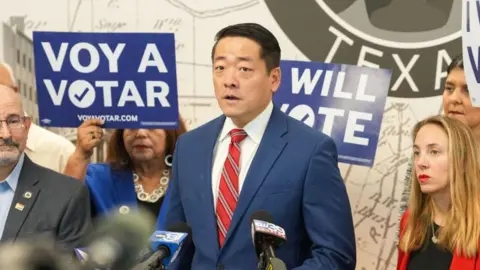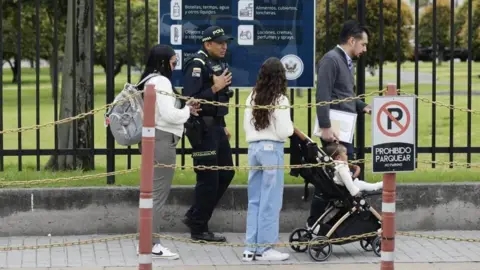A group of Democratic lawmakers in Texas has left the state in protest of a proposed congressional redistricting map that critics argue unfairly favors Republicans. The move is an attempt to block a vote on the new boundaries, which would likely secure five additional GOP-leaning seats in the U.S. House of Representatives.
To proceed with the vote, the Texas legislature requires a two-thirds quorum. However, with 51 Democrats now absent—many reportedly in Illinois—Republicans lack the necessary numbers. The lawmakers plan to remain out of state for the duration of a special legislative session called by Governor Greg Abbott, which is also addressing disaster relief for recent floods and a ban on THC, the psychoactive component in cannabis.
Republicans have warned of consequences, including fines of $500 per day for absent legislators. Texas Attorney General Ken Paxton has even suggested arresting the fleeing Democrats, accusing them of shirking their duties.
Democrats, however, argue they are resisting a system they say ignores voter interests. “This isn’t about abandoning our responsibilities—it’s about refusing to participate in a process that’s rigged against fair representation,” said State Representative Gene Wu, a Houston Democrat.
The proposed redistricting would reshape several key areas, including the Rio Grande Valley and Austin, where two Democratic-held districts would be merged. Another change would expand a North Texas district currently represented by a Democrat to include more Republican-leaning rural areas.
This isn’t the first time Texas Democrats have used this tactic. In 2021, they fled to Washington, D.C., in an unsuccessful effort to block voting restrictions, and in 2003, they traveled to Oklahoma to oppose another GOP-backed redistricting plan.
While Democrats in some states have drawn criticism for partisan redistricting of their own, others, like New York and California, use independent commissions to determine boundaries.
The Texas GOP currently holds 25 of the state’s 38 congressional seats. The new map could push that number to 30, strengthening Republican influence ahead of next year’s midterm elections.
Redistricting typically occurs every decade following the census, but Texas Republicans are pushing for mid-cycle changes—a move that has drawn scrutiny. Supporters of the plan, like Republican State Representative Todd Hunter, insist it’s “a fair proposal for Texas.” Critics, however, see it as another battle in an ongoing political war over representation.









